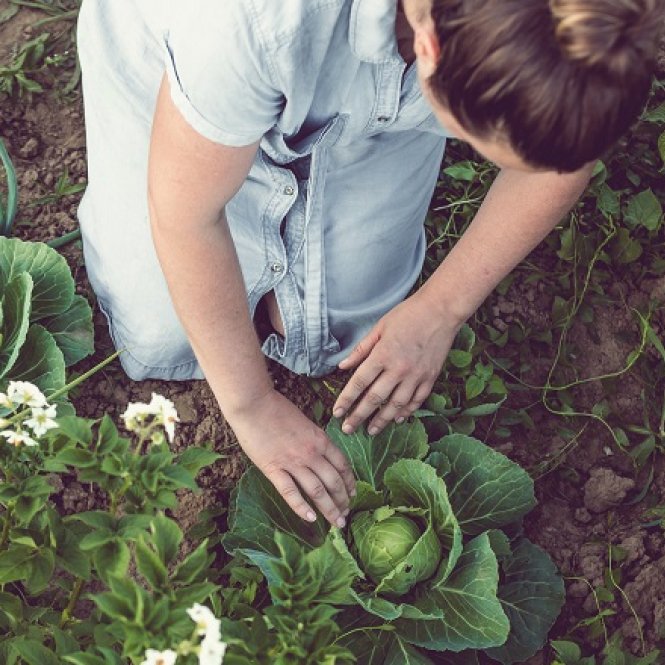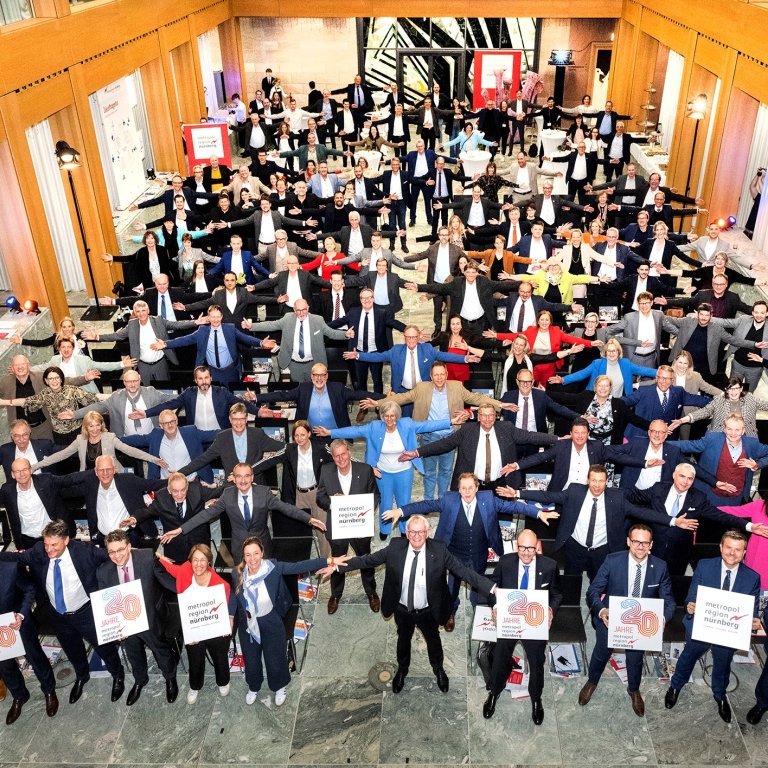

The congress focus of BIOFACH 2020 is on the positive effects of organic farming under the heading "Bio wirkt! The second talk in the BIOFACH interview series - this time with Prof. Dr. Bernhard Freyer - looks at the positive effects of organic for the soil.
Soil is a precious commodity, one of the most valuable resources we have. Soil is the basis for the production of our food. According to the FAO (Food and Agriculture Organization of the United Nations), one third of the world's soils are already degraded. Soil degradation means permanent or irreversible change of soil or its loss. The fact is that it takes about 1,000 years to build up 2 to 3 cm of humus layer. It has been proven that organic farming methods contribute to the formation of valuable humus. This not only increases soil fertility, but also improves soil structure and makes soils more resistant to drought. Humus-rich soils are CO2 reservoirs.
Agricultural scientist and soil expert Prof. Dr. Bernhard Freyer is head of the Institute for Organic Agriculture at the University of Natural Resources and Applied Life Sciences (BOKU), Vienna. He has been involved with organic farming and its positive effects on soils in Europe, Africa and the USA since he was a student. His research fields include crop production, agroecology, organic farming, development cooperation, innovation research, environmental sociology. Special areas of interest are farm conversion to organic farming, crop rotation management, inter- and transdisciplinary systems research in urban-rural contexts.
Where do the greatest challenges lie today with regard to soil as a resource, Prof. Dr. Freyer?
To date, there are no requirements within the framework of ecologically motivated direct payments to design crop rotations in such a way that we sustainably increase soil fertility. This is a major omission and an enormous mistake on the part of politicians. This could be controlled by means of apportionments in direct payments. And we would have gained a lot. Healthy soil management requires about 15% clover or lucerne in the crop rotation. Even farms without livestock can use this, whether as fodder for sale, for example within the framework of inter-farm cooperation, for seed production or parts of the emergence as green manure. The positive side effects are an increase in soil fertility, a reduced need for nitrogen mineral fertilizers, lower weed pressure and less to no erosion. If we had reacted in time, agriculture would not be the big climate polluter. Today, with the changes in the climate that are now becoming apparent, this is no longer enough. In many regions of the world, we also need agro-forestry systems to stabilise or restore the soil. All this is well known, but rarely implemented, except by organic farmers.
This is a major omission and an enormous mistake on the part of politicians.
What positive effects does organic farming have on the soil?
The most important positive effects of organic farming are the higher humus content, the aggregate stability of the topsoil, which provides habitats for soil organisms. Water infiltration, the possibility of water penetrating into the soil as well as the water holding capacity are comparatively higher in organic soils. This is not only important for the plants, which can be provided with water for a longer period of time, but also for the nutrient storage capacity of soils. Nutrients are not washed out, but are available to the plants and can be replenished by the soil. A major advantage of organic farming with regard to soils is the higher microbial activity and diversity of soil organisms, which contribute to nutrient availability and perform a plant protection function.
Organic farming keeps the soil fertile and builds new fertile soil - this is important not only in our latitudes, but especially in the countries of the global south. Can organic soil management help achieve the SDGs (Sustainable Development Goals) faster, and if so, which ones?
Organic management prevents soils from eroding. Together with higher water-holding capacity, these are the two essential functions that can prevent the worst from happening during weather extremes - for example, the erosion of the fertile, mineral-rich top layer of soil. These effects are of course also of considerable importance in countries of the South. In addition, the reduction of cost-intensive farm inputs such as mineral fertilizers and pesticides can make farming possible, even when farms have low liquidity.
The sustainability of production, healthy food and climate-friendly cultivation speak for themselves and affect various SDGs in a positive sense - this is always about complex effects.
Organic farming prevents soils from eroding.
What do we have to do to expand organic farming faster and worldwide - can conventional agriculture learn from organic farming?
The entire agricultural research, funding policy, education and media must be reoriented. The World Bank, as an important donor, would also have to revise its guidelines, tie them to ecological requirements and promote them more strongly if they are adhered to, in order to create incentives. In concrete terms: biodiversity promotes soil fertility, reduces weed and disease pressure, stops erosion, increases water availability, contributes to damage minimisation and healthy food.
The consequential costs of incorrect land use are gigantic
Does soil conservation also have an ethical and social component for you?
Well, this is where it all starts - and the orientation of our lifestyle is then the resulting variable of a basic ethical and social attitude, which precisely cannot be anything other than the exit from the current agricultural, food and health system. Will we starve then? Certainly not - because the current agricultural and food system is inefficient beyond measure in terms of quantity supply. Changes in agriculture and nutrition alone are not enough - a large number of industries must be closed down and new ones established. The capacity for innovation is there, there is no lack of it. The consequential costs of incorrect land use can hardly be accounted for economically, they are gigantic, but they are still being concealed today. For the sake of simplicity and convenience, they are kept out of the balance sheets. But this is catching up with us, because resources are finite. Investment costs for a reorientation must be borne by society as a whole and not just by agriculture. The principle of responsibility must be rethought. The comprehensive problem - the list of repairs to the agricultural and food system and the associated health system is incalculable - is a global remediation case. For, "There is no right life in the wrong ..." (Th. W. Adorno).
Read the full interview in the BIOFACH Newsroom.
You can find the first part of our interview series here.
The interview was conducted by Karin Heinze, BiO Reporter International.
Image credits:
istockphoto.com/sanjeri



